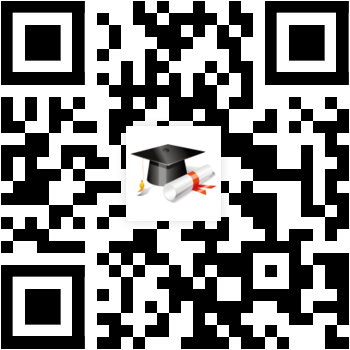2011在职硕士联考英语冲刺模拟附答案(一)
来源:在职研究生招生信息网 发布时间:2011-10-25 10:35:17
Part I Dialogue Communication (15 minutes, 15 points)
Section A Dialogue Completion
Directions: In this section, you will read 5 short incomplete dialogues between two speakers, each followed by four choices marked A, B, C and D. Choose the answer that best suits the situation to complete the dialogue. Mark your answer on the ANSWER SHEET with a single line through the center.
1. — How's everything going?
— ____.
A. Everything is finished B. Everything has been done
C. Not so bad, you know D. Not doing wrong, you know
2. — I'm exhausted. I have work for a whole day.
— Why not take a rest, then?
— ____.
A. Because I can't afford it B. Maybe I should
C. I don't know D. Sorry, I can't tell you
3. — Have you heard that Mary has been elected president of the company?
— After working hard for so many years, ____.
A. she surely welcomes it B. she has certainly earned it
C. she is welcome to it D. it's good news for her
4. — Can you post these letters for me on your way home?
— ____.
A. No problem B. It's all right C. Fine D. I hope so
5. — Do you happen to have twenty-eight dollars on you?
— ____?
— I want to buy an English-English dictionary.
A. Do you want the money B. What will you want to do
C. How much D. What for
Section B Dialogue Comprehension
Directions: In this section, you will read 5 short conversations between a man and a woman. At the end of each conversation there is a question followed by four choices marked A, B, C, and D. Choose the best answer to the question from the four choices given and mark your answer on the ANSWER SHEET with a single line through the center.
6. Woman: Did you see Ann? I heard she got laid off.
Man: No, that's terrible. Can I do anything for her?
Question: What did the woman say about Ann?
A. Someone stole her money. B. She had an accident.
C. She has an illness. D. She lost her job.
7. Woman: I know you like this restaurant. But I just don't like the food here.
Man: Everyone is entitled to his own opinion.
Question: What does the man mean?
A. Each of them owns a restaurant. B. The woman should tell him her own opinion.
C. Many customers argue in the restaurant. D. Different people have different tastes.
8. Woman: Well, the income tax is too high for me this month.
Man: If it were not reasonable, I'm afraid some people would try to get round the tax.
Question: What does the man mean?
A. Some people would work out a new tax law.
B. Some people would try to escape paying the tax.
C. He would stop paying the income tax.
D. He would appeal to the authorities for that.
9. Woman: We have turned in our proposal for setting up a new agency in South Korea.
Man: But the general manager has to turn it over before a decision is made.
Question: What does the man mean?
A. The general manager has to set up a new agency.
B. The general manager has to turn down the proposal.
C. The general manager has to think about the proposal carefully.
D. The general manager has to revise the proposal.
10. Man: I'm a student of Stanford University. How much is a dorm room?
Woman: Since you are a college student, we can offer you a special rate. It's $600 for room and board.
Question: What does the woman mean?
A. The man can get a room and transportation.
B. The man will be offered a room and special rate.
C. The man will get a room and meals.
D. The man will get a room and a balcony.
Part II Vocabulary and Structure (20 minutes, 10 points)
Directions: There are 20 incomplete sentences in this section. For each sentence there are 4 choices marked A, B, C and D. Choose the one that best completes the sentence. Mark your answer on the ANSWER SHEET with a single line through the center.
11. Those naughty boys were caught _________ flowers in the garden again.
A. to steal B. stealing C. having stolen D .to have stolen
12. Only when your identity has been checked ______.
A. you are allowed in B. you will be allowed in
C. will you allow in D. will you be allowed in
13. My sister met him at the Grand Theatre yesterday afternoon, so he ______ your lecture.
A. couldn't have attended B. needn't have attended
C. mustn't have attended D. shouldn't have attended
14. ______ she couldn't understand was ________ fewer and fewer students showed interest in her lessons.
A. What … why B. That … what
C. What … because D. Why … that
15. It was only with the help of the local guide _______.
A. was the mountain climber rescued B. that the mountain climber was rescued
C. when the mountain climber was rescued D. then the mountain climber was rescued
16. I will have John ________my bike and I heard Tom had had his bike __________ in that factory.
A. repair; repairing B. repair; repaired
C. repaired; repair D. repairing; repaired
17. Having been ill in bed for nearly a month, he had a hard time ______ the exam.
A. pass B. to pass C. passed D. passing
18. Don't worry; Philip is quite used _______ in such heavy traffic as this.
A. to driving B. to be driving
C .to have drive D .to drive
19. _______, some famous scientists have the qualities of being both careful and careless.
A. Strangely enough B. Enough strangely
C. Strange enough D. Enough strange
20. Although he has lived with us for years, he ________us much impression.
A. hadn't left B. didn't leave C. doesn't leave D. hasn't left
21. We volunteered to collect money to help the ____ of the earthquake.
A. victims B. folks C. fellows D. villagers
22. Fred is second to none in maths in our class, but believe it or not, he ____passed the last exam.
A. easily B. hardly C. actually D. successfully
23. He holds an important position in that company. ______, I don't quite trust him.
A. Thus B. Furthermore C. Otherwise D. Nevertheless
24. One of the attractive features of the course was the way the practical work was _________ with the theoretical aspects of the subject.
A. instructed B. involved C. interfered D. integrated
25. The population boom is a ________that has already happened in some parts of the world, with terrible results.
A. distress B. miracle C. disaster D. giant
26. Every autumn the bears can be seen _______around this town of about 800 people.
A. wondering B. wandering C. winding D. wounding
27. The teacher wrote a brief comment in the _____ to show the student why it was wrong.
A. mark B. margin C. mail D. manual
28. In general, the amount that a student spends on housing should be held to one-fifth of the total ________ for living expense.
A. acceptable B. available C. advisable D. applicable
29. Over a third of the population was estimated to have no ______ to health service.
A. assessment B. assignment C. exception D. access
30. — How far apart do they live?
— ______ I know, they live in the same neighborhood.
A. As long as B. As far as C. As well as D. As often as
Part III Reading Comprehension (40 minutes, 40 points)
Directions: There are 4 passages in this part. Each of the passages is followed by 5 questions or unfinished statements. For each of them there are 4 choices marked A, B, C and D. Choose the best one and mark your answer on the ANSWER SHEET with a single line through the center.
Passage One
I hear many parents complain that their teenage children are rebelling. I wish it were so. At your age you ought to be growing away from your parents. You should be learning to stand on your own feet. But take a good look at the present rebellion. It seems that teenagers are all taking the same way of showing that they disagree with their parents. Instead of striking out boldly on their own, most of them are holding one another's hands for reassurance.
They claim they want to dress as they please. But they all wear the same clothes. They set off in new directions in music. But they all end up listening to the same record. Their reason for thinking or acting in such a way is that the crowd is doing it. They have come out of their cocoon into a larger cocoon.
It has become harder and harder for a teenager to stand up against the popularity wave and to go his or her own way. Industry has firmly carved out a market for teenagers. These days every teenager can learn from the advertisements what a teenager should have and be. This is a great barrier for the teenager who wants to find his or her own path.
But the barrier is worth climbing over. The path is worth following. You may want to listen to classical music instead of going to a party. You may want to collect rocks when everyone else is collecting records. You may have some thoughts that you don't care to share at once with your classmates. Well, go to it. Find yourself. Be yourself. Popularity will come—with the people who respect you for who you are. That's the only kind of popularity that really counts.
31. The author's purpose in writing this passage is to tell______.
A. readers how to be popular with people around
B. teenagers how to learn to make a decision for themselves
C. parents how to control and guide their children
D. people how to understand and respect each other
32. According to the author, many teenagers think they are brave enough to act on their own, but in fact most of them ______.
A. have much difficulty understanding each other
B. lack confidence
C. dare not cope with any problems alone
D. are very much afraid of getting lost
33. Which of the following is NOT true according to the passage?
A. There is no popularity that really counts.
B. Many parents think that their children are challenging their authority.
C. It is not necessarily bad for a teenager to disagree with his or her classmates.
D. Most teenagers are actually doing the same.
34. The author thinks of advertisements as ______ to teenagers.
A. inevitable B. influential
C. instructive D. attractive
35. The main idea of the last paragraph is that a teenager should______.
A. differ from others in as many ways as possible
B. become popular with others
C. find his real self
D. rebel against his parents and the popularity wave
Passage Two
Much unfriendly feeling towards computers has been based on the fear of widespread unemployment resulting from their introduction. Computers are often used as part of automated production systems requiring a least possible number of operators, causing the loss of many jobs. This has happened, for example, in many steelworks.
On the other hand, computers do create jobs. They are more skilled and better paid, though fewer in number than those they replace. Many activities could not continue in their present form without computers, no matter how many people are employed. Examples are the check clearing (交换) system of major banks and the weather forecasting system.
When a firm introduces computers, a few people are usually employed in key posts (such as jobs of operations managers) while other staff are re-trained as operators, programmers, and data preparation staff. After the new system has settled down, people in non-computer jobs are not always replaced when they leave, resulting in a decrease in the number of employees. This decrease is sometimes balanced by a substantial increase in the activity of the firm, resulting from the introduction of computers.
The attitudes of workers towards computers vary. There is fear of widespread unemployment and of the takeover of many jobs by computer-trained workers, making promotion for older workers not skilled in computers more difficult.
On the other hand, many workers regard the trend toward wider use of computers inevitable. They realize that computers bring about greater efficiency and productivity, which will improve the condition of the whole economy, and lead to the creation of more jobs. This view was supported by the former British Prime Minister, James Callaghan in 1979, when he made the point that new technologies hold the key to increased productivity, which will benefit the economy in the long run.
36. The unfriendly feeling towards computers is developed from ______.
A. the possible widespread unemployment caused by their introduction
B. their use as part of automated production systems
C. the least possible number of operators
D. the production system in steelworks
37. The underlined word “They” (Line 1, Par. 2) refers to______.
A. computers B. jobs C. activities D. systems
38. According to Paragraph 2, without computers ______.
A. human activities could not continue
B. there could not be weather forecasting systems
C. many activities would have to change their present form
D. banks would not be able to go on with check clearing
39. According to the passage, what results from the introduction of computers?
A. After re-training, all employees in the firm get new jobs.
B. A considerable proportion of people are employed in key posts.
C. The firm keeps all of its original staff members.
D. The decrease in staff members may be balanced by the increase of firm activities.
40. James Callaghan's attitude towards computers can be best described as______.
A. doubtful B. regretful C. unfriendly D. supportive
Passage Three
Loneliness has been linked to depression and other health problems. Now, a study says it can also spread. A friend of a lonely person was 52% more likely to develop feelings of loneliness. And a friend of that friend was 25% more likely to do the same.
Earlier findings showed that happiness, fatness and the ability to stop smoking can also grow like infections within social groups. The findings all come from a major health study in the American town of Framingham, Massachusetts.
The study began in 1948 to investigate the causes of heart disease. Since then, more tests have been added, including measures of loneliness and depression.
The new findings involved more than 5,000 people in the second generation of the Framingham Heart Study. The researchers examined friendship histories and reports of loneliness. The results established a pattern that spread as people reported fewer close friends.
For example, loneliness can affect relationships between next-door neighbors. The loneliness spreads as neighbors who were close friends now spend less time together. The study also found that loneliness spreads more easily among women than men.
Researchers from the University of Chicago. Harvard and the University of California, San Diego, did the study. The findings appeared last month in the Journal of Personality and Social Psychology.
The average person is said to experience feelings of loneliness about 48 days a year. The study found that having a lonely friend can add about 17 days. But every additional friend can decrease loneliness by about 5%, or two and a half days.
Lonely people become less and less trusting of others. This makes it more and more difficult for them to make friends---and likely that society will reject them.
John Cacioppo at the University of Chicago led the study. He says it is important to recognize and deal with loneliness. He says people who have been pushed to the edges of society should receive help to repair their social networks.
The aim should be to aggressively create what he calls a "protective barrier" against loneliness. This barrier, he says, can keep the whole network from coming apart.
41. Besides loneliness, which of the following can also spread among people?
A. Friendship B. Happiness C. Depression D. Smoking
42. The Framingham Heart Study starting from 1948_________.
A. expanded its research topics
B. involved 5,000 patients of depression
C. identified loneliness as one key factor for heart disease
D. examined the relationship between loneliness and depression
43. Which of the following is true about the spread of loneliness?
A. It leads to a gradual loss of friends.
B. It is a common phenomenon among women.
C. It is often found in the neighborhood.
D. It ruins the relationships between close friends.
44. Having a lonely friend, you are more likely to ________.
A. strengthen your friendship
B. develop new friendship
C. Increase the sense of loneliness
D. reduce the sense of loneliness
45. According to John Cacioppo at the University of Chicago, loneliness can_______.
A. result in aggressiveness
B. Cause people to be overprotective
C. Infect social networks
D. Push people to the verge of poverty
Passage Four
California has a new program called the Digital Textbook Initiative. "Starting this fall with high school math and science, we will be the first state in the nation to provide schools with a state-approved list of digital textbooks." That was Governor Arnold Schwarzenegger in June. talking about his effort to get schools to use materials available free online. He listed reasons why he thinks digital textbooks make sense.
California approves traditional textbooks in six-year cycles. Digital ones can offer the latest information. They lighten the load of school bags. They save paper and tress, and make learning more fun and interactive. And above all, he said they help schools with their finances.
The state has had to make severe cuts in school spending because of deep financial problems. More than six million students attend California public schools.
Earlier this year, California invited content developers to offer digital math and science materials for high schools. These had to meet at least 90% of the state's learning requirements. Specially trained teachers examined 16 textbooks and approved ten of them.
Six of the ten were published by the CK12 Foundation, a nonprofit group that had been developing digital science and math books for about two years. The foundation paid teachers and other education professionals to write and edit them. The money came from a group financed by the Khosla Family.
California cannot require schools to use the digital textbooks. Individual school districts will have to decide for themselves.
Susan Martimo, a California Department of Education official, says she does not expect widespread use right away. He best guess is that some schools with a lot of technology will be the first to use them, but only in addition to their traditional books.
School administrators point out that the texts may be free online, but students need a way to access them. Not everyone has a computer or electronic reader. Schools could print out copies, but that would not help the environment. Also, there is the cost to train teachers to use digital textbooks effectively.
46. The Digital Textbook Initiative __________.
A. will probably take effect in six years
B. covers all the high school subjects
C. has been approved by all states
D. is advocated by California state governor
47. The main reason for promoting digital textbooks is to ___________.
A. help save money
B. benefit the environment
C. provide interesting materials
D. reduce students' heavy burden
48. The digital textbooks were approved by __________.
A. trained teachers B. content developers
C. Khosla Family D. Ck12 Foundation
49. According to Susan Martimo, digital textbooks ____________.
A. are not likely to have a widespread use
B. will soon replace traditional ones
C. will first be adopted by well-equipped schools
D. are certain to be approved by school districts
50. It can be inferred from the last paragraph that __________.
A. schools are reluctant to print out copies
B. the use of digital textbooks is not really free
C. students need to pay for computers
D. training teachers to use the textbooks is not efficient
Part IV Cloze Test (15 minutes, 10 points)
Directions: There are 10 blanks in the following passage. For each numbered blank, there are 4 choices marked A, B, C and D. Choose the best one and mark your answer on the ANSWER SHEET with a single line through the center.
We know we have to read "between the lines" to get the most out of anything. Marking up is also a useful practice, __51__ you shouldn't mark up a book which isn't yours. Librarians __52__ lend you books expect you to keep them clean, and you should .If you decide that I am right about the usefulness of marking books, you will have to __53__ them.
There are three kinds of book owners. The first has all the standard sets and best sellers—unread, __54__.The second has a __55__ many books —few of them read __56__, most of them dipped into, but all of them as clean and shiny as the day they were bought. The third has a few books or many—every one of them __57__ and dilapidated (残破的).
Why is __58__ a book indispensable to reading? First, it keeps you awake. I mean wide awake.In the second place, reading if it is active, is thinking, and thinking __59__ express itself in words. Finally, writing helps you __60__ the thought you had, or the thoughts the author expressed.
51. A. but B. although C. and D. so
52. A. whom B. who C. which D. what
53. A. buying B. buy C. borrow D. exchange
54. A. untouching B. untouched C. touching D. touched
55. A. great B. large C. big D. greater
56. A. on B. aloud C. through D. about
57. A. dog-earing B. dog-eared C. to be dog-eared D. to dog-ear
58. A. marking up B. mark up C. to mark up D. to mark
59. A. tend to B. tends to C. tending to D. tending
60. A. remember B. forget C. remembering D. forgetting
Paper Two试卷二
Part V Translation (30 minutes, 10 points)
Directions: Translate the following passage into Chinese and put your translation on the ANSWER SHEET.
Exactly, when you take a course in public speaking nowadays, you don't hear much about grammar and vocabulary. Instead, you're taught how not to be afraid or embarrassed, how to speak without a prepared script, how to reach out to the live audience before you. Public speaking is a matter of overcoming your longstanding nervousness.
The same is true of writing. The point of the whole thing is to overcome your nervous emotion, to break through the invisible barrier that separates you from the person who'll read what you wrote. You must learn to sit in front of your typewriter and reach out to the person at the other end of the line.
Of course, in public speaking, with the audience right in front of you, the problem is easier. You can look at them and talk to them directly. In writing you're alone. It needs an effort of your experience or imagination to take hold of that other person and talk to him or her. But that effort is necessary or at least it's necessary until you've reached the point where you quite naturally and unconsciously "talk on paper".
Part Ⅵ Writing(30 minutes, 15 points)
Directions: You are to write in no less than 120 words on the topic “Create a green campus”. Write your composition on the ANSWER SHEET.
1. 建设绿色校园十分重要
2. 绿色校园不仅指绿色环境
3. 为了建设绿色校园我们应该……
参考答案
PartⅠ
1-5 CBBAD 6-10 DDBCC
Part Ⅱ
11-15 BDAAB 16-20 BDAAC 21-25ABDDC 26-30 BBBDB
Part Ⅲ
31-35 BCABC 36-40 ABCDD 41-45 BAACC 46-50 DAACB
Part Ⅳ
51-55 ABBBA 56-60 CBABA
Part V
的确如此,今天如果你参加一个演讲班,你不会听到多少关于语法与词汇方面的指导。相反,老师会告诉你怎样克服害怕或局促不安,怎样在没有手稿的情况下演讲,怎样向你面前活生生的观众靠拢。演讲其实就是克服长时间紧张情绪的问题。
这也正是写作的真谛。这一切的关键就在于克服你的紧张情绪,越过横在你和你未来的读者之间的无形的障碍。你必须学会坐在打字机前面,向另一端的读者靠拢。
当然,演讲中观众就近在眼前,问题会容易一些。你可以看着他们,直接对着他们说话。在写作时,你却是一个人。这需要你努力用你的经验或想象力去抓住另一个人并把你的想法告诉他或她。这种努力是必要的,至少在你可以十分自然地、无意识地“在纸上说话”之前是必要的。
Part Ⅵ
Create a Green Campus
It is of great importance to make and maintain a green campus in our university or college. Obviously, a growing number of people are beginning to realize that it is our duty to do that in the present days, since the concept of “a green world” has become the focus of the society.
The idea of “a green campus” is beyond a green environment. To begin with, the development on the campus is to be sustainable and recyclable. Some of the authorities' budget should be on how to reduce of the waste. What's more, we'd better be aware of the seriousness of pollution around us. Thus the idea of environmental protection may become a common occurrence in our daily life.
It is necessary that effective actions should be taken to protect our campus from waste and pollution, and hence these activities are to play an increasingly important role in our day-to-day life. Certainly, there is little doubt that further consideration must be paid to our green campuses.
上一篇: 2010年MBA英语模拟试题(三)





















